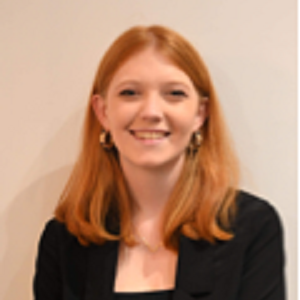Contact us
Group Coordinators
Lisa Duncan e-mail / University profile
Mona Maier e-mail / University profile
Abigail Stephen e-mail / University profile
Welcome to the HABIT ECR Group
The HABIT-Group (Health And BehavIoural Science Training Group) provides support and training for Behavioural Scientists and researchers with an interest in Health and Behavioural Science during the early stages of their careers - from PhD Researchers, Research Assistants to Post-docs.
We host regular workshops, writing retreats, and journal clubs online.
If you are an early career researcher or a PhD student with an interest in Health and Behavioural Science and would like to join the group, to hear more information, or have any ideas about future workshops please get in touch .
HABIT Group Workshop Schedule 2023
Welcome to the HABIT group, upcoming schedule, introductions and questions, followed by a writing retreat (dedicated time to come together and work on writing/projects). Speaker/Facilitator(s): Mona & Lisa
Dedicated time to come together and work on writing/projects. Speaker/Facilitator: Mona
Using Zotero, Mendeley, and Rayyan for Referencing and Systematic Reviews Speaker/Facilitator(s): Mona & Lisa
Academic CV Building Speaker/Facilitator: Dr Julia Allan
Dedicated time to come together and work on writing/projects Speaker/Facilitator: Mona
The confusing terminology defining the field of Behavioural Science - Insights, Nudge Theory, and Health Psychology Speaker/Facilitator: Professor Marie Johnston
An opportunity for anyone attending EHPS conference to get feedback on their presentations/posters Speaker/Facilitator(s): Mona & Lisa
Open Science and Open Research Speaker/Facilitator: Dr Daniel Powell
HABIT Group Profiles
- Azar Alexander-Sefre
-

London, UK (GMT+1)
- Emma Bilney
-

Behaviour change - Decision Fatigue - Public Health - Taylor Coffey
-

Behavioural theory - clinical trials - methodology - qualitative evaluation
Aberdeen, UK (GMT+1)
- Lisa Duncan
-

Treatment Burden - Measurement - Patient-reported Outcomes - Long-term Health Conditions
Aberdeen, UK (GMT+1)
- David Field
-

Sexual Health, gbMSM, Risk, Sexually Transmitted Infections, HIV
Dublin, Ireland (GMT+1)
- Sophie Greenwood
-

Statistics - Clinical trials - Missing data - Expert elicitation - Patient opinions
Aberdeen, UK (GMT+1)
- John Handal
-
John Handal completed his MPH at the University of Aberdeen in 2018 and is now back as a part-time and virtual PhD student at the Institute of Applied Health Sciences. His research is looking to better understand the factors related to the spread and scale of multi-sectoral approaches to integrated care. John currently works full-time at Healthcare Excellence Canada as a Program Lead. He supports diverse healthcare teams across Canada to adopt innovations that improve patients' experiences, patient outcomes, and provider well-being. His previous work has included developing pandemic-related policy guidance, program support for the implementation of artificial intelligence and virtual care in health settings, and improving access to primary care in northern, rural and remote communities. In his spare time, John enjoys hitting the gym, binge-watching the latest reality tv shows, and attending live-music events. He's always up for a coffee chat to connect about work, school, or just in general!
Health equity - Patient engagement- Design thinking - Quality improvement - Patient Safety
Ottawa, Canada (GMT-4)
- Mona Maier
-

Behavioural Economics - Decision Making - Biases - Decision Fatigue
Aberdeen, UK (GMT+1)
- James Mkandawire
-

Adolescent health- Adolescent caregiving - Family Planning - HIV - child marriages
Malawi (GMT +1)
- Claire Robertson
-

Health Comics - Public Health Information - Accessibility
- Abbie Stephen
-

Social prescribing, socioeconomic status, dietary behaviour, nutrition
Aberdeen, UK (GMT+1)
